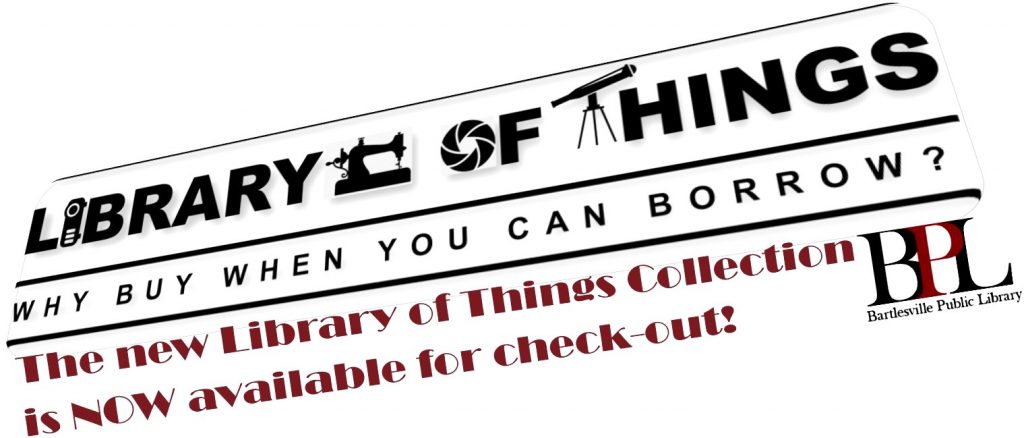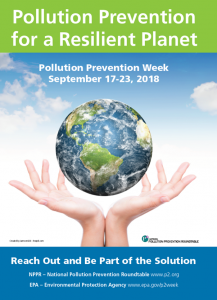This post originally appeared on the GLRPPR Blog.
When most people think about things they can borrow from their local library, books and DVDs are most often what comes to mind. However, many libraries are going beyond their typical collections and lending a plethora of other things. Some of these include:
Science kits, toys, and games
At the Alaska Resources Library and Information Services, you can check out animal skeletons, pelts, and skulls—along with over 250,000 books, educational science kits, and environmental education materials. Within the Great Lakes Region, the Illinois Department of Natural Resources partners with libraries and other organizations throughout the state to lend resource trunks/packs that cover a variety of Illinois-specific topics.
The Chicago Public Library has a circulating collection of ScienceConnections Discovery Packs. And the Shirley M. Wright Memorial Library in Trempealeau, WI loans bird watching kits and metal detectors. Many libraries also circulate maker kits for kids.
Many libraries loan toys. Several of those, including the Zion Benton (IL) Public Library, loan American Girl doll kits.
Prom dresses/formal wear and interview clothes
The Gilbert (MN) Public Library loans formal dresses for four weeks at a time. The Schaumburg (IL) Public Library holds a Prom Formal Giveaway each spring. The New York Public Library’s Riverside Library’s Grow Up work accessories collection lends neckties, bow ties, briefcases, and handbags. Items have a one-time, three week lending period.

Home improvement and maintenance tools
Tools are handy to have around the house, but they can also be expensive and difficult to store. Tool lending libraries, which aren’t always affiliated with public libraries, are becoming increasingly common. Find one near you or start one if your community doesn’t have one already. Libraries throughout the country loan Kill-A-Watt power meters, which help you measure the efficiency of your appliances. Many libraries have also started loaning technology, including internet hot spots.
Cake pans, cooking tools, and maker/crafting kits
If you like to cook or bake, you may eventually run across a recipe that requires a special type of pan or kitchen tool that you may only use once. Libraries have you covered there too. The Northlake Public Library in Northlake, IL lends a wide variety of speciality kitchen equipment, including food processors, panini presses, and crepe pans. They also lend crafting tools like sergers and knitting looms.
Musical instruments
Musical instruments are an investment if you aren’t sure you’re going to continue playing. Libraries have you covered there too. For example, you can borrow a Moog theremini and a wide variety of other instruments from the Ann Arbor (MI) Public Library.
Seeds
Seed libraries, often located in public libraries or other community gathering points, are institutions created for the purpose of sharing seeds. The idea is that a library patron can “check-out” seeds to grow themselves, let “go-to-seed”, and then return seeds to the library to share with other community members. Learn more about seed libraries here or find one near you.
The next time you need household tools, electronics, games, or even formal wear, check to see if your local library has you covered. You can save money and reduce your environmental impact at the same time.


 In 1990, Congress passed the Pollution Prevention Act. Pollution Prevention (P2) Week, celebrated during the third week of September each year (September 17-23, 2018), highlights the efforts of EPA, its state partners, industry, and the public in preventing pollution right from the start.
In 1990, Congress passed the Pollution Prevention Act. Pollution Prevention (P2) Week, celebrated during the third week of September each year (September 17-23, 2018), highlights the efforts of EPA, its state partners, industry, and the public in preventing pollution right from the start.